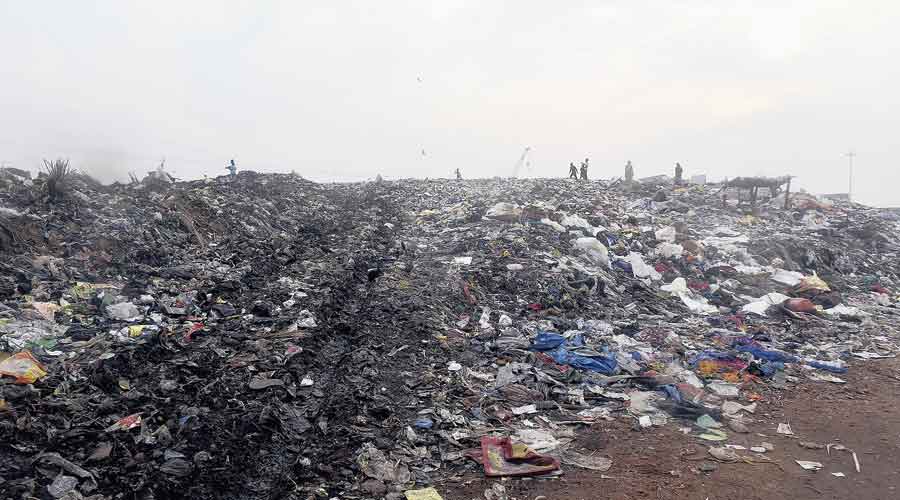The Calcutta Municipal Corporation has to pay Rs 20 lakh a month as environmental compensation for failing to scientifically manage waste at a dumpsite in Garden Reach and segregate waste, the state pollution control board has said.
The fine amount will keep on adding till the time the CMC takes corrective measures, a board official said on Tuesday.
The board has fined the civic body Rs 10 lakh each for unsegregated waste and for not biomining waste, a CMC official said.
Kalyan Rudra, the chairman of the state pollution control board, said the CMC hadn’t treated the waste at dumpsites according to the National Green Tribunal order. “The NGT has said legacy dumpsites must be biomined. The CMC did not do that. So, we, as the regulatory authority, have imposed the fine on them.”
Rudra said the CMC was among several municipalities that had been fined for the same reason. “There are 107 legacy dumpsites in our state and about 127 municipalities or municipal corporations. Almost all of them have been found to be non-compliant. The fine amount will keep on adding till they take corrective measures.”
The civic body had started biomining, also called bioremediation, at the Dhapa dumpsite but not at the Garden Reach site, a CMC official said. “We have been fined for not starting biomining at the Garden Reach dumpsite. It is an 8-acre plot.”
Bioremediation is a process in which various types of waste — plastic, paper, metals, construction and demolition waste — are separated and each is sent to its recycling plant. Only the waste that is inert and cannot be recycled is left at the dumpsite. This way, the volume of waste gets reduced and free space is created at a site, which is almost saturated.
Bioremediation will create free space at an old dumpsite, according to those specialising in waste management. The civic body must simultaneously begin waste segregation at source, one such specialist said.
The fresh waste collected from houses and the mined waste at dumpsites will go to recycling plants. Only the non-recyclable waste collected from houses will go to the dumpsite. The life of a dumpsite will be extended by many years if the bulk of the waste goes to recycling plants.
“Waste segregation means segregating the waste at dumpsites and at the source… while collecting waste from houses,” Rudra said.
A CMC official said the civic body had started waste segregation in 27 wards in the city.
Even in these wards, the segregation is done only in some houses. Other households and commercial establishments in these wards and everyone in the other 117 wards of the CMC mix all kinds of waste and dump the mixed waste into waste collection carts, the official said.











